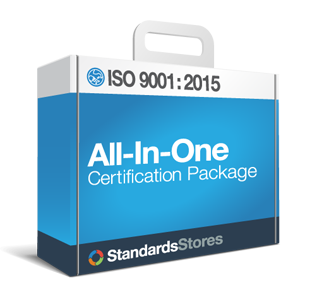What is ISO 9000?
There is often confusion around the family of ISO 9000 standards which are a series of documents that define requirements and guidelines for a quality management system (QMS): ISO 9000 (Guidelines), ISO 9001 (requirements), ISO 9002 (Guidelines), etc. But an organization can only achieve certification to ISO 9001.
ISO 9000:2015 Quality management systems – Fundamentals and vocabulary is part of that series. It explains the basics of quality management systems and provides definitions for the terminology used in the 9000 series. It does not contain any requirements therefore, an organization cannot be ISO 9000 certified.
ISO 9000 Certified: The Myth
“ISO 9000 Certified” is technically incorrect as ISO 9000 does not have requirements. “ISO Certified” is also incorrect, as it does not state the ISO standard to which you are certified. (See Steps to ISO 9001 certification) It is common to use these terms, but it is only correct to say “ISO 9001 Certified”, and ISO has rules about how you can publicize your certification.
So What is ISO 9000 Exactly?
ISO 9000 focuses on the key concepts that make up a quality management system (QMS). There are really only 2 sections to this standard: Fundamentals and Vocabulary. The first half of the standard explains basic quality management principles while the second half is a dictionary of quality management terms which include notes or examples for additional clarification. ISO 9000 helps organizations interpret the guidelines or requirements of the ISO 9000 series, that they may be applied properly.
Learn about the other standards in the ISO 9000 series:
- ISO 9001:2015 Quality Management Systems – Requirements
- Read about the ISO 9001:2015 Requirements
- ISO 9002 – Guidelines for the application of ISO 9001:2015
- ISO 9004 – Managing for the sustained success of an organization, provides guidelines for sustaining QMS success through evaluation and performance improvement.


